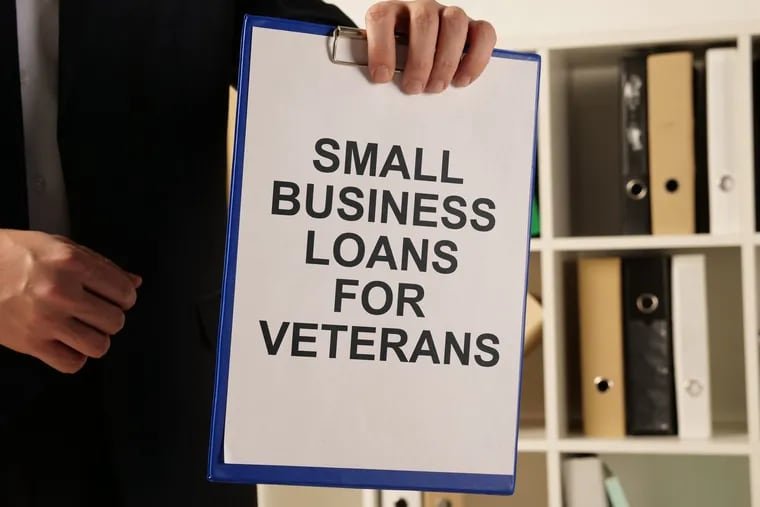The Department of Labor recently reported that 17.9 million men and women are veterans of the U.S. military, with approximately 200,000 joining the workforce each year.
Many veterans are looking for work, but many also want to become business owners and start their own companies. According to the Small Business Administration, veterans own more than 1.9 million businesses, employing approximately 5.5 million Americans.
“There are a lot of statistics that show veterans miss the sense of purpose and purpose that their military service gave them,” said Hank Gillen, a veteran and director of veterans services at Saint Joseph’s University. “That’s why so many are drawn to entrepreneurship.”
John Fleming, regional administrator for the Small Business Administration’s Mid-Atlantic office, said veterans who own businesses or are considering starting a new venture can find many local resources to help, including capital, counseling and contracting assistance from the U.S. Small Business Administration.
Capital Resources for Veterans
The SBA has a special low-interest reservist loan program to help cover a company’s operating costs if a key employee (including the owner) who is a reservist is called to active duty. Eligible veteran-owned businesses can also participate in the Veterans Advantage program, which offers lower interest rates and fees on SBA-guaranteed business loans, as well as other training, counseling and support services.
“These loans help start new businesses because they have low costs, low collateral requirements and are often guaranteed by the federal government,” Fleming said. “These are additional benefits we offer specifically to veterans.”
Support and Counselling Services
Many veterans complete their service without any formal business training, and less than one-third of all veterans have a college degree.
For those who need assistance, the SBA’s network of Small Business Development Centers provides advice and training to veteran-owned businesses. The federal government also funds Veterans Business Outreach Centers, which are designed to provide entrepreneurial development services, including business training, counseling and introductions to resource partners, to military members, veterans, National Guard and Reserve members, military spouses and family members who are interested in starting or growing a small business.
Both the Philadelphia-based Veterans Multi-Service Center and the Greater Philadelphia Veterans Network (GPVN) provide career and counseling services to veterans and their families, as well as networking sessions, regular in-person and online events, “Shark Tank” competitions and educational programs specifically targeted at ex-military entrepreneurs.
“Having a network, even if just to talk to like-minded people who share experiences and help each other, is so important,” says GPVN Board President Sean Ellsworth. “Serving in the military means you’re part of a family, and our events allow you to network with other veteran business owners and exchange ideas and introductions.”
For those looking for a more formal educational business program designed specifically for veterans, Saint Joseph’s Veterans Services Office offers many resources, including specialized programs for disabled veterans. The school also offers an Entrepreneur Bootcamp for Veterans, a free, three-phase program designed to build the skills needed to start and grow a new business venture.
The program requirements include a seven-day “residency” that includes classroom discussions, guest lectures by successful ex-military entrepreneurs, experiential learning opportunities, and one-on-one guidance with trained mentors on business plan development and “presentation” competitions. Ongoing support is available for 12 months after the residency.
Guillen said his students represent the military’s diverse demographic, with more than half of the program’s 3,000 graduates nationwide being non-white and 29 percent being women.
“We always highlight the fact that veterans of all backgrounds, genders and races tend to be successful entrepreneurs thanks to the skills they developed during their years of service, such as resilience and tenacity,” he said. “We help them make informed decisions about their businesses.”
Winning Government Contracts
These organizations, and others like APEX Accelerators, help veteran-owned businesses win government contracts. Fleming said 23% of government contracts should be awarded to small businesses, with 5% of those awarded to veterans and 3% to disabled veterans.
“We’ve heard from a lot of government contractors that they can’t find enough veteran-owned businesses to meet this goal, so we’re helping them make those connections,” Fleming said.
Participating in a network can also lead to referrals for government contracts, which is why joining a veterans group like GPVN is so important. Many veterans consider their most important resource in business to be, and rightly so, their fellow veterans.
“To be a veteran is to be part of a culture,” Ellsworth says. “There’s a really strong, direct connection within the veteran community and a desire to help each other.”

